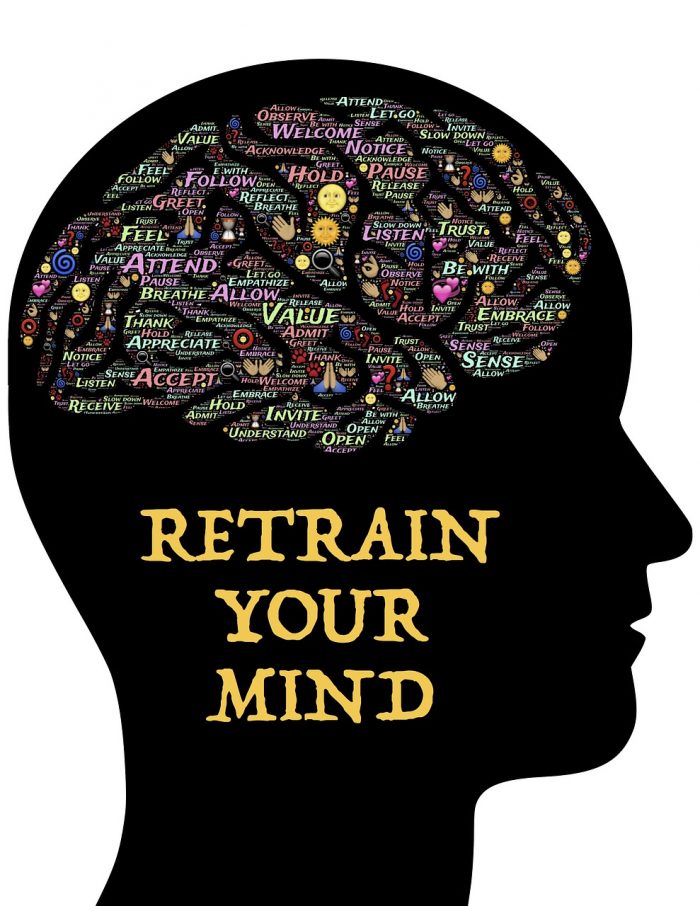There is a fast growing rate in what we as a society identify to be mental illness. This includes depression,anxiety,bipolar disorder, etc. Each day I can personally log onto my own social media and find others speaking out about their own inner struggles regarding mental health. But what if I told you that this rating is increasing due to our perception of what we are conditioned to believe mental illness is as a whole?
Our perception of mental health dictates our ability in being enabled to overcome such challenges. Those so called “mental illnesses,” in which I like to personally identify as human challenges, in actuality are all human nature. We are capable of experiencing the ability to feel and have emotion because we are all human. That is what comes with our human experience, and is a portion to what we as a society identify as being mentally sick. Why is it that what one has experienced in life is perceived to be a mental sickness, when in reality it is a reaction to their own human experience? Some have felt more and experienced more than others and as a result, some are experiencing more pain and challenges mentally than others.
The reaction to life’s occurences have been taught through our individual experiences and are often handed down through our family ties. This is what dictates one’s ability to overcome such mental conditioning because it’s what designs our nervous system. Some go through more traumatic experiences in life than others, and some do not have the experience of what it is like to have a safe or loving environment to properly heal. Many do not even acknowledge that this is something in which is essential, while others whom do acknowledge this, lack knowledge in where to find it. Many also lack the vulnerability to come to terms with needing it, but what if a different approach towards mental illness made a difference in the less vulnerable ones? Many do not have the awareness of a healthier approach towards their own mental health because it is not in the mainstream of what’s being offered for mental health. Therefore, many individuals down spiral or suppress such emotions while physical diseases are a contributing factor in return.
As stated, some challenges are more rooted than others. One’s ability and drive to overcome specific challenges are individually based. This is because it depends not only on what one has endured in life, but also on the experiences towards one’s approach regarding mental health. Our approach towards mental health is greatly impacted by our conditioning. Our approach is not just constructed through our individual experience, but also through what we are currently being taught to believe regarding mental illness as a whole.
Our experiences throughout our childhood alters our perception of the world. Depending on our perception, we too attract within the world what we subconsciously fear or have been conditioned to believe. We are often taught to rely on external sources to seek help, with those same external sources labeling individuals as sick.
If we seek external sources to cure our mental conditioning while at the same time those external sources label those seeking help as “sick,” how are we creating a healthy avenue for one to identify their own inner strength and enabling one to overcome any mental obstacle? Through this continuous cycle of an approach, it is sending a message that one’s ability to heal is out of their control because they are suffering from a sickness and this will never truly allow anyone to properly heal. In order to heal, one has to be able to do the inner work while using the appropriate external sources to assist in seeing their own inner strength and capability of doing the inner work needed. However, if we lack access to the proper external sources, how can the rate in mental illness decrease?
What we indentify as mental illness is progressing because our westernized approach is not particularly the healthiest or most beneficial. The fast growing rate of mental illness within our society is an example of that.
What if we all perceived mental illness not as a sickness, but rather as the conditioning of what one has been taught to believe or endured? Therefore, what if we change our approach towards mental health and we take away any judgment or label to define others for what one has experienced? What if we take the time from our fast paced lives to listen closely to another’s story and learn from it? What if those being labeled as mentally sick are actually here to teach us valuable lessons through their stories and are often times healers themselves? What if we as a society are not providing the proper tools in successfully healing? What if rather than categorizing individuals into specific groups and in return making a profit or labeling one as “sick,” we create a loving and safe environment for those needing to be healed? What if rather than feeding one’s nervous systems with toxic beliefs that they are sick, and making one think they can take specific medications to heal themselves because they are suffering from a sickness, we change our own belief system towards our approach in tending to mental health overall? How many lives would that save within our world?

 Share on bsky
Share on bsky







Read 1 comment and reply